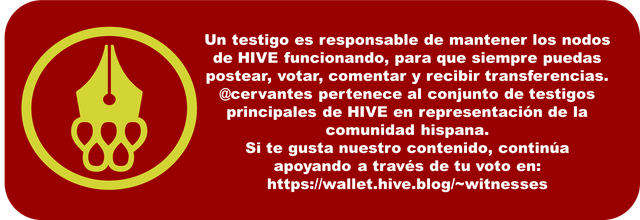
Carolina, una amiga de Chile, está interesada en que me conecte una o dos veces por semana para hablarles a sus hijos sobre historia de Venezuela. Ella tiene tres años desde que se fue de acá. En aquel momento los niños estaban muy pequeños, el mayor de cuatro y el menor casi tres.
Desde que llegó ella pudo hacer una actividad desde casa y contribuir con el ingreso familiar, eso le ha permitido también estar con los niños, los que vieron suspendidas sus actividades escolares durante la pandemia.
Para Carolina el asunto de la emigración ha sido duro, todavía siente mucho el desapego, dice que no sabe si algún día se acostumbrará a su nueva condición y frecuentemente sufre ataques de nostalgia.
Cuando se siente muy mal suele echarme una llamadita y conversamos sobre lo difícil que es asumir la nueva vida, sin amigos, sin familia con la que apoyarse, con nuevas costumbres. En fin, todas las cosas que se pueden echar de menos cuando uno se ha desarraigado.
Mientras conversamos suelo insistirle en que esté muy atenta sobre las palabras y sentimientos que va sembrando en los hijos. No vaya a ser que sin proponérselo les esté dejando una nostalgia que a ellos realmente no les corresponde.
Los hijos de Carolina llegaron muy pequeños a su nuevo destino, es verdad que seguramente también echaron de menos, sobre todo en los primeros meses, la ausencia de los abuelos y la presencia de familiares y amigos. Como estaban tan pequeños seguro que no tendrían mucha añoranza por paisajes, clima y esas cosas que para los adultos son muy importantes.
Sin embargo, los niños tienen una capacidad de adaptación muy grande. Y así como tienen la capacidad de aprender fácilmente un idioma extraño, tal como si fuese el materno, también pueden aprender las costumbres y maneras del nuevo sitio y comenzar a funcionar como si fueran de allí. La plasticidad de su cerebro da para eso y mucho más.
Quienes podemos entorpecer ese proceso de adaptación somos los adultos, con nuestras añoranzas y resistencias a aceptar la nueva realidad. Carolina, por ejemplo, dice que siempre va a conservar el acento de acá, que eso le hace sentirse conectada con lo que dejó, y eso es respetable. Pero ya los muchachos tienen ese acento cantarín, que según mis oídos, caracteriza al habla de los chilenos.
Los niños van dando sus pasos hacia el proceso de integración a la nueva cultura y eso no debe ser entorpecido. De ese modo solo lograría crear un conflicto innecesario para ellos.

Sí me parece adecuado que aún estando pequeños conozcan la historia y costumbres del país donde nacieron y donde nacieron sus padres. Eso es loable, y me parece adecuado también no dejarles perder la memoria de sus raíces. Por eso atiendo gustoso la invitación de Carolina para hablarles a los niños algunas cuestiones de la historia y la cultura venezolana.
Pero otra cosa muy distinta es estarles haciendo referencias a cada rato sobre todo lo que dejaron atrás (que generalmente es lo bueno). Y me parece completamente desacertado establecer comparaciones odiosas donde su nueva patria quede mal parada. Eso a mi modo de ver solo sirve para profundizar la sensación de desarraigo. Además, hay que ser agradecido con el sitio que los acogió y a los niños hay que cultivarles ese agradecimiento.
No es fácil aceptar que uno ya no pertenece al lugar donde partió. Y esa duda acompaña a mucha gente durante toda la vida, ese es uno de los grandes dramas de la emigración, el sentirse que no se es de ningún lado.
Pero a los pequeños hay que dejarles saber que ahora son del nuevo sitio donde están. Me parece una opción sana sobre todo si no se ha salido con un plan claro de retorno. Distinto es si se sabe de antemano que la ida es transitoria, o si no hay planes concretos de establecerse permanentemente en el nuevo destino.
La nostalgia no es buena compañera para nadie. La añoranza por un pasado que fue y que quedó atrás solo sirve para bloquear perspectivas de futuro. A los adultos les hace mucho daño la nostalgia y a los niños pues sencillamente no les corresponde.
Gracias por tu tiempo.


Carolina, a friend from Chile, is interested in having me connect once or twice a week to talk to her children about Venezuelan history. She is three years old since she left. At that time the children were very young, the oldest four and the youngest almost three.
Since she arrived, she has been able to do an activity from home and contribute to the family income, which has also allowed her to be with the children, whose school activities were suspended during the pandemic.
For Carolina the emigration issue has been hard, she still feels a lot of detachment, she says she does not know if she will ever get used to her new condition and frequently suffers from nostalgia attacks.
When she feels very bad she usually calls me and we talk about how difficult it is to take on a new life, without friends, without family to support her, with new customs. In short, all the things you can miss when you have been uprooted.
As we talk, I usually insist that she be very attentive to the words and feelings she is planting in her children. It may be that without intending to, she is leaving them with a nostalgia that is not really theirs.
Carolina's children arrived at their new destination very young, it is true that they probably also missed, especially in the first months, the absence of their grandparents and the presence of family and friends. Since they were so young, it is certain that they would not have much longing for landscapes, climate and those things that are very important for adults.
However, children have a great capacity to adapt. And just as they have the ability to easily learn a foreign language as if it were their mother tongue, they can also learn the customs and manners of the new place and begin to function as if they were from there. The plasticity of their brain allows for that and much more.

Those of us who can hinder this adaptation process are the adults with our longing and resistance to accept the new reality. Carolina, for example, says that she will always keep her accent from here, that it makes her feel connected to what she left behind, and that is respectable. But the boys already have that singing accent, which according to my ears, characterizes Chilean speech.
The children are taking their steps towards the process of integration to the new culture and it would be a serious mistake on my friend's part to hinder it. It would only create unnecessary conflict for them.
I do think it is appropriate that even when they are young, they should know the history and customs of the country where they were born and where their parents were born. That is praiseworthy, and I think it is also appropriate not to let them lose the memory of their roots. That is why I gladly accept Carolina's invitation to talk to the children about some aspects of Venezuelan history and culture.
But it is quite another thing to be making references to them all the time about everything they left behind, which is usually the good thing. And it seems to me completely unwise to establish hateful comparisons where their new homeland looks bad. In my opinion, that only serves to deepen the feeling of uprootedness. Besides, you have to be grateful to the place that welcomed you, and you have to cultivate that gratitude in your children.
It is not easy to accept that one no longer belongs to the place where one left. And that doubt accompanies many people throughout their lives, that is one of the great dramas of emigration, the feeling that one does not belong anywhere.
But we have to let the little ones know that now they are from the new place where they are. It seems to me a healthy option, especially if they have not left with a clear plan of return. It is different if it is known beforehand that the departure is transitory, or if there are no concrete plans to settle permanently in the new destination.
Nostalgia is not a good companion for anyone. Longing for a past that was and is left behind only serves to block future prospects. Nostalgia hurts adults a lot and children simply don't get it.
Thank you for your time.
Translated with www.DeepL.com/Translator (free version)







Te invito a apoyar este proyecto como witness y a formar parte de esta gran comunidad uniéndote a su Discord en el siguiente enlace:
Discord de la comunidad Cervantes

The rewards earned on this comment will go directly to the person sharing the post on Twitter as long as they are registered with @poshtoken. Sign up at https://hiveposh.com.
Ciertamente @irvinc, es una realidad que están afrontando muchos connacionales, pero hay mostrarse optimista ante los retos que nos coloca el destino, Feliz día, cariños.
Hola, si que es duro irse de tu país natal dejar la familia y amistades, te lo digo porque tengo muchos familiares regados por el mundo y están pasando por una situación similar a la de tu amiga. Algunos que tienen varios años fuera quieren volver para quedarse.